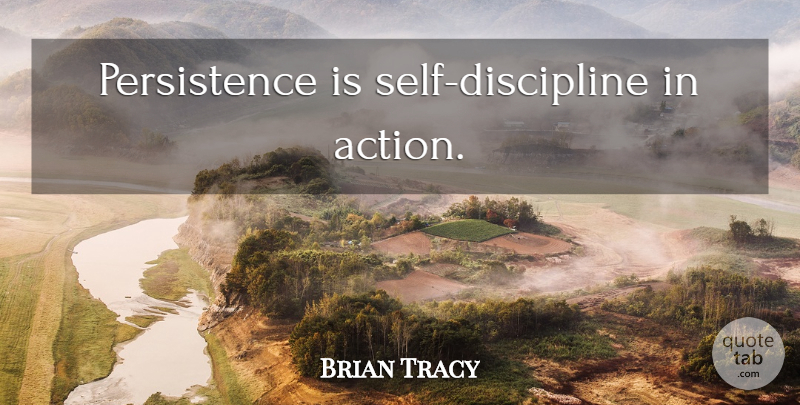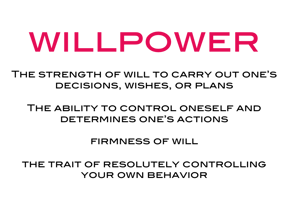From Procrastination to Productivity: How Self-Discipline Can Change Your Life
From Procrastination to Productivity: How to Develop Self-Discipline for Optimal Results
From Procrastination to Productivity: How to Develop Self-Discipline for Optimal Results

The difference between motivation and self-discipline
Motivation and self-discipline are two crucial factors that play a significant role in achieving success. While motivation can provide a temporary boost of energy and enthusiasm, self-discipline is the driving force that keeps us going even when motivation wanes. Most people complain about not being motivated, but what they truly lack is self-discipline. When working with my clients or a conference crowd, I work hard to raise their level of energy because the higher their level of energy, the more they will retain from the session. However, it is not the energy level that creates consistent follow-through; it is self-discipline. It is not about how you feel; it is about the distance you are prepared and willing to go.
Motivation is like a spark that ignites a fire within us, pushing us to take action. It is the initial burst of energy that propels us forward. However, motivation is fleeting and can easily be extinguished by setbacks, obstacles, or simply the passage of time. On the other hand, self-discipline is the consistent and unwavering commitment to our goals, regardless of whether we feel motivated or not. When people ask me how I achieved all of the things I've accomplished, I tell them I woke up and answered the bell. I remember coming home from the hospital after having five heart attacks in 2020. The very next morning, I was up and working in my home office. I am not suggesting you push yourself that hard, but you get the idea. Let's explore the power of self-discipline to change your life forever.
Why self-discipline is crucial for success
Success is not just about talent or luck; it is about following through even when you don't feel like it. It is about consistently putting in the effort and taking the necessary actions to achieve your goals. Success is pushing inexorably towards a goal with an implacable commitment to finish what you start. This implacability is where self-discipline becomes crucial. Without self-discipline, even the most talented individuals can fall short of their true potential.
Self-discipline is what separates the winners from the losers in this world. It is the ability to get things done regardless of how we feel. Life does not care about our excuses or our lack of motivation; it only responds to execution. Those who possess self-discipline understand that success is not about how you feel, but about the distance you are willing to go to achieve your dreams.
Register for the Breaking the Curse of Procrastination Webinar and Change Your life Forever!

The importance of following through
One of the key aspects of self-discipline is the importance of following through on our commitments. It is easy to start a project or set a goal, but it takes self-discipline to see it through to completion. Following through is what separates the dreamers from the doers.
When we consistently follow through on our commitments, we build trust and credibility, not only with others but also with ourselves. Each time we honor our word and complete a task, we strengthen our self-discipline muscle. This creates a positive feedback loop that boosts our confidence and motivates us to tackle even bigger challenges.
Get your copy of Dr. Rick Wallace's 26 book, Transcendent: The Remarkable Ability to Rise Above the Chaos to Win!

7 steps to developing unyielding self-discipline
Developing self-discipline is a process that requires conscious effort and practice. Here are seven steps to help you develop unyielding self-discipline:
-
Set clear and specific goals: Clearly define what you want to achieve and break it down into smaller, manageable tasks. This will help you stay focused and motivated.
-
Create a routine: Establish a daily routine that includes time for work, rest, and self-care. Having a structured schedule helps eliminate distractions and keeps you on track.
-
Build healthy habits: Cultivate habits that support your goals. Whether it's waking up early, exercising regularly, or practicing mindfulness, these habits will reinforce your self-discipline.
-
Stay committed to your commitments: When you make a commitment, honor it. Avoid making excuses or procrastinating. Hold yourself accountable for your actions and take responsibility for your choices.
-
Practice delayed gratification: Learn to delay instant gratification in favor of long-term rewards. This means resisting the temptation to indulge in immediate pleasures and instead staying focused on your goals.
-
Surround yourself with positive influences: Surround yourself with people who inspire and motivate you. Seek mentors or join communities that share your values and goals. Their support and guidance will strengthen your self-discipline.
-
Celebrate small victories: Acknowledge and celebrate your progress along the way. Rewarding yourself for accomplishing milestones reinforces positive behavior and motivates you to continue pushing forward.
Overcoming the "I don't feel like it" mindset
One of the biggest challenges in developing self-discipline is overcoming the "I don't feel like it" mindset. We all experience moments of resistance and lack of motivation, but it is how we respond to these feelings that determines our level of self-discipline.
When faced with an "I don't feel like it" mindset, remind yourself of your goals and the reasons why you started. Reflect on the long-term benefits of taking action and the consequences of giving in to momentary discomfort. Focus on the bigger picture and stay committed to your vision.
Additionally, break down your tasks into smaller, more manageable steps. By doing so, you can trick your mind into taking action, as smaller tasks are less intimidating and easier to tackle. As you start taking action, you will often find that motivation follows, making it easier to stay disciplined.
How to stay focused and committed
Staying focused and committed is essential for developing self-discipline. Here are some strategies to help you stay on track:
-
Eliminate distractions: Identify and eliminate any distractions that may hinder your progress. Turn off notifications on your phone, create a designated workspace, and prioritize your tasks to minimize interruptions.
-
Practice mindfulness: Cultivate the habit of being present in the moment. Mindfulness helps you stay focused on the task at hand and reduces the chances of getting sidetracked by unrelated thoughts or activities.
-
Break tasks into smaller chunks: Large tasks can be overwhelming and may lead to procrastination. Break them down into smaller, more manageable chunks, and tackle them one at a time. This approach helps maintain focus and prevents feeling overwhelmed.
-
Set deadlines: Establish clear deadlines for your tasks and hold yourself accountable to them. Deadlines create a sense of urgency and prevent procrastination.
-
Find your motivation triggers: Identify what motivates you and use it to your advantage. Whether it's rewarding yourself after completing a task or visualizing your desired outcome, find what works best for you and incorporate it into your routine.
The role of self-discipline in achieving goals
Self-discipline plays a crucial role in achieving goals. It is the bridge between setting goals and actually accomplishing them. Without self-discipline, goals remain mere dreams and aspirations.
When you possess self-discipline, you become more focused, determined, and resilient. You are able to overcome obstacles, stay committed to your vision, and make the necessary sacrifices to achieve your goals. Self-discipline provides the consistency and perseverance required to turn your goals into reality.
Examples of successful individuals with strong self-discipline
Many successful individuals attribute their achievements to their strong self-discipline. Here are a few examples:
-
Elon Musk: The CEO of SpaceX and Tesla is known for his relentless work ethic and self-discipline. Musk's ability to work long hours and stay committed to his ambitious goals has contributed to his success.
-
Oprah Winfrey: The media mogul faced numerous challenges throughout her career but never lost sight of her dreams. Winfrey's self-discipline and determination allowed her to build a media empire and become one of the most influential women in the world.
-
Michael Jordan: The basketball legend's self-discipline and commitment to excellence are legendary. Jordan's relentless practice and unwavering focus are what made him one of the greatest athletes of all time.
These examples demonstrate that self-discipline is a common trait among successful individuals. It is the driving force behind their accomplishments and the key to unlocking their full potential.
Tools and techniques for building self-discipline
Building self-discipline requires consistent effort and the use of various tools and techniques. Here are some effective strategies to help you build self-discipline:
-
Time management: Effective time management helps you prioritize tasks, avoid procrastination, and stay disciplined. Use tools like calendars, to-do lists, and productivity apps to manage your time effectively.
-
Accountability partners: Find an accountability partner or join a supportive community to hold you accountable for your actions. Sharing your goals and progress with others adds a layer of external motivation and support.
-
Visualization: Visualize your desired outcome and the steps required to achieve it. This technique helps you stay focused, motivated, and committed to your goals.
-
Positive affirmations: Repeat positive affirmations that reinforce your self-discipline and commitment. Affirmations like "I am disciplined and focused" can help reprogram your mindset and strengthen your resolve.
-
Mindset shift: Adopt a growth mindset and view challenges as opportunities for growth. Embrace discomfort and see it as a stepping stone towards your goals. A positive mindset is essential for building self-discipline.
Register for the Breaking the Curse of Procrastination Webinar and Change Your life Forever!

Visit the Change Starts Here Resource Center!
Conclusion: Embracing self-discipline for optimal results
In a world filled with distractions and instant gratification, self-discipline has become a rare and valuable trait. It is the key to transforming procrastination into productivity and achieving optimal results in all areas of life.
By understanding the difference between motivation and self-discipline, recognizing the importance of following through, and implementing the seven steps to developing unyielding self-discipline, you can unlock your full potential and achieve remarkable success.
Remember, it is not motivation you lack; it is self-discipline. Motivation may come and go, but self-discipline is what will keep you on track when the going gets tough. Embrace self-discipline, stay focused, and register for The Mind Unleashed online course to unleash your true potential and achieve the results you desire!

Dr. Rick Wallace has authored and published 26 books, including his latest work, Transcendent: The Remarkable Ability to Rise Above the Chaos to Win in Life, The War on Black Wealth, Academic Apartheid, Critical Mass: The Phenomenon of Next-Level Living, Born in Captivity: Psychopathology as a Legacy of Slavery,” The Undoing of the African American Mind, and “The Mis-education of Black Youth in America.” He has written and published thousands of scholarly and prose articles and papers, with the overwhelming majority of his work surrounding the enigmatic issues plaguing blacks and inner-city communities on every level. Papers that he has published include: “Special Education as the Mechanism for the Mis-education of African Youth,” “Racial Trauma & African Americans,” “Epigenetics in Psychology: The Genetic Intergenerational Transmission of Trauma in African Americans,” and “Collective Cognitive-Bias Reality Syndrome” — to name a few.
Dr. Wallace is also a powerful and electrifying public speaker who speaks to various types and sizes of audiences on several subjects. He also functions as a personal life enhancement advisor, life strategist, consultant, and counselor.
As the Founder and CEO of The Visionetics Institute, Dr. Wallace uses a wide range of disciplines. These disciplines include psycho-cybernetics, neuro-linguistic programming, psychology, neuro-associative conditioning, embodied cognitive conditioning, and transformational vocabulary to help people improve their performance in every area of their lives, including finance, marriage, business, parenting, and more.





